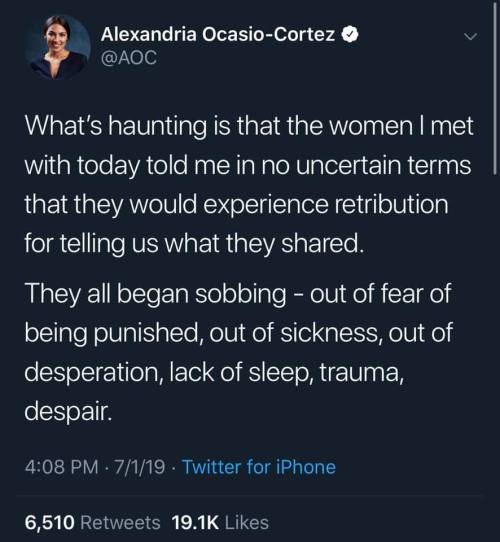Uhm... I'm Sad Tonight?
Uhm... I'm sad tonight?
More Posts from Lily-sam and Others

One of my majors is english, so I do a lot of reading. Having to read an entire novel each week is rough, but it really helped me refine my annotating methods. Here is how I annotate fiction and nonfiction books!
FICTION
1. MAKE USE OF THE BLANK PAGES IN THE FRONT OF THE BOOK
I’m someone who has a lot of trouble with keeping track of characters, especially if there are a lot of them. To remedy this, I use one of the blank pages in the front of the book to make a list of each of the characters, and sometimes I’ll write something about them so I can place a name to a character. Here’s a quick example:

2. USE HIGHLIGHTERS AND ASSIGN MEANING TO THE COLORS
If you aren’t someone who likes to actually write in the book, you can obviously use different colored post-its for this instead. I typically use three different colors when highlighting, and this is what the colors mean for me:
Pink - Character introductions: I use pink to highlight any time a character is introduced for the first time. You will often be asked to write about characters’ personalities, so this makes it easier to find descriptions of characters later.
Green - Important plot points: I use green to highlight any important things that happen that I think I’ll need to look back at.
Yellow - quotes: I use yellow for important quotes, or anything that is important but doesn’t fit any other category.
Extra - Purple: After you finish reading a book, your teacher will usually point out important passages too. When this happens, I use purple to highlight those sections to denote that my professor found them important, because this probably means they’re worth talking about in an essay.
3. WRITE A SUMMARY AT THE END OF EACH CHAPTER
To make sure you really understood what you just read, it is a good idea to write down a brief summary on the last page of the chapter. This helps with remembering what you read, and it also makes it much easier to go back and find events in the plot that you want to talk about.
4. POST-ITS FOR ESSAY IDEAS
I’ve pretty much had to write an essay on virtually every book I’ve had to read in both high school and college, so I’ve made a habit of using post it notes to bookmark pages with content that would be helpful in making arguments in an essay. Make a short note on the post it so you remember what point you were planning on making with that passage. *This is especially helpful for timed essays during which you’re allowed to use the book as a resource. That way, you can have essentially your entire argument planned out ahead of time.
NONFICTION
I use similar methods when annotating nonfiction, but instead of paying attention to plot points, I try to focus on main arguments and ideas.
1. USE A BLANK PAGE FOR SUMMARIZING
Like with fiction, I like to use a blank page at the front of the book to summarize different sections of the book. This makes it easy to remember all the main ideas without having to flip back through the entire book.

2. HIGHLIGHTING AND WRITING
When I read nonfiction, I care much less about color-coding my annotations. I typically just use whatever I have around me at the time. What really matters about nonfiction is making sure you really understand the content, so I write down summaries in the margins on nearly every other page.

As you can see, there’s a lot of different colors going on. They mean nothing. Honestly, my yellow highlighter was just going dead so I was going back and forth between that and my purple one. The red pen was the one I was using during my initial read-through, and the second time I read these pages, I just happened to have a blue pen, so don’t worry about the colors.
Anyway, what is really important about this is my short summaries in the margins. Doing this not only helps you dismantle the arguments being made, but it also forces you to become an active reader.
3. ACTIVE READING
Like i just mentioned, engaging with the book by writing summaries frequently makes you an active reader. It is difficult to get anything out of a book if you aren’t actively engaging with the material, especially if it’s nonfiction. To fully understand the ideas being presented in the book, you need to find a way to actively engage with it. You can do this by using my ‘writing summaries in the margins’ method, or you can do whatever it is that makes you really focus on the content of the book. Anyone can zone out and look at words on a page, but if you want that A, you need to really dive into the book!
2003... 'climate change denier'...
i just found out merriam webster has a time traveler feature that tells you some of the words that were “born” the same year as you. it’s pretty neat yall should do this

This is my physics notes for circuits and they're killing me...
Also new vlog is up!
Sometimes I get overwhelmed by the vastness of things I want to be, do and achieve.
I want to be the girl reading Anna Karenina in a dimly lit cafe and losing herself in poetry and philosophy every night. Yet, I also want to be sharp and analytical and save lives with a scalpel in my hand. I want to travel the world and surprise people with how many languages I can speak - drink wine and watch ballet in France, explore abandoned castles in Scotland, feel the centuries of history in Italy and Greece, learn to surf in Hawaii or Australia. I want to have an attic studio where I can make art and laugh with my lover about the funny-looking portrait as I can never get the face proportions quite right. I want a house away from the city and a horse so that I can roam the fields. But I also want to live right in the middle of the city and admire the skyline and the skyscrapers every night. And the list goes on and on…
They say follow your passion but which one do I follow if there are only 24 hours in a day? I know I won’t be able to do all of the things I dream of but I personally object to having to limit myself.



May 3rd 2017 // Master’s thesis research.
Back to School: How to Get an A*/8 or 9 in an English Lit Essay!

Happy September, everyone!
As we all get our gears in motion to start a new year, I thought I would share my top tips for scoring the highest marks in English Literature essays.
(P.S. Lots of these tips are applicable to other subjects too)
1. Don’t write about the character as if they are real
Unfortunately, this is a common error in English Lit essays. It is absolutely imperative to remember that a character is not a person, but is a construct of the writer in order to present an idea or theme. No matter the question, you should be linking your answer back to the writer’s ideas and theme of the text, even if it doesn’t seem obvious what the theme is on the first inspection of the question. Using the author’s name frequently in your essay will demonstrate that you recognise the character is not a real person - ‘Shakespeare portrays Macbeth as a tragic hero, as defined by Aristotle as…’
2. Don’t analyse the plot
Avoid analysing the plot or when things happen in the text. Don’t write ‘When X happens it makes us think Y’. Instead:
Analyse the writer’s use of language, structure and form to create meaning
Do a close language analysis of specific words/phrases, including a sound analysis (plosives, assonance, etc.)
Do a structural analysis of what happens when and why that’s important (Freytag’s pyramid)
Do an analysis of form (stage directions, dramatic monologue, etc.)
3. Keep your answer relevant throughout
You need to be explicitly answering the question - not going off on a tangent nor trying to change the question to suit an answer that you want to write. One way of avoiding this is by starting each paragraph with a topic sentence, summarising what that paragraph is going to be about and how it answers the question. Another method is simply by rewording the question into your answer at the start and end of every paragraph. At least. For greater impact, include synonyms of the word, which can also help with the readability of your answer.
4. Avoid PEE/PEEL/etc. where you can
Thousands of students are taught the same, basic Point-Evidence-Explain (or variant) analytical paragraph structure. If you want to stand out, show academic strength, and achieve the highest marks then you must break free from the chains of PEE! (This also applies for your introduction format. ‘In this essay, I will argue…’ gets pretty dull after reading it 100 times)
For my students, I will be teaching them to write What-How-Why paragraphs:
WHAT has the writer done?
HOW have they done it?
WHY have they done it/is it effective?
This way, your focus is always on why the writer has chosen to use that specific language/structure/form, but it allows you to be creative in crafting your response. Being able to discuss the ‘why’ of literature is the key to unlocking the highest grades. Reading through examiners’ reports this summer has made one thing clear - it is not enough to merely spot linguistic devices or structural features. You must explain why the writer has chosen them and why that is an effective choice (or not).
5. Avoid sweeping statements about context
The main advice here is to only include comments about the context of the text if it adds to the analytical point that you are making. They should not be a bolt-on sentence, but they should enhance your answer.
Further, sweeping claims like ‘All Jacobean women were oppressed by society’ is far too vague. On the other hand, a comment like ‘Lady Macbeth is a disturbing example of womanhood because she denies her gender at a time where the role of a woman was clear-cut, even patriarchal, in Jacobean society’ suggests that you have a greater understanding of how context can influence the writer’s choices.
6. A plan is your best friend
Always, always make time to plan your answer. A method I recommend is, first, circling the key words in the question (character/theme, what you are asked to do, where in the text you are asked to look, etc.). Secondly, write all of your ideas down onto the page, highlighting parts from the extract if you have that in front of you. Finally, select a judicious number of points that you are going to talk about (quality not quantity here) and number the order in which you are going to make them.
If you are writing a comparative essay, each paragraph must start and end with a comparative point about whatever it is you are comparing (characters/themes/etc.) I suggest the following format:
‘X is presented in both text A and text B. However, in A the author uses device 1 and 2 to demonstrate X. On the other hand, in B, the author demonstrates X via use of device 2 and 3.’ Then write one paragraph for each text. Repeat this again for another similarity. And again for a third - if you think that is appropriate.
Click HERE if you want more top tips/resources/essay advice/study motivation!!
Click HERE if you want more top tips/resources/essay advice/study motivation!!
Photo credit @eintsein 🌻
Hello! Sorry for bothering you. I've recently created a discord for people that are learning Japanese but unfortunately my studyblr is quite new and I don't have a large following. So i've been asking around if japanese langblrs could reblog it so that more people can see it, and that's why i'm here! You can absolutely say no if you don't want to, but i thought it would be worth to ask!!! Let me know, even privately!! Thank you 💖
oh absolutely, i would love to!! i’m sure it would be useful for a lot of my followers. could you please send me the link? 💛
You guys should check out my side blog😋 @productivelily102







Contact Your Representative and Tell Them To Fight Against Trump’s Camps
Additionally, if you can see if you can donate money to these organizations
Lawyersforgoodgoverment.com
fairfightbondfund.org
lgbtqfund.org
communitybondproject.org
immigrantfamilies.org
freedomforimmigrants.org


Thursday, the 3rd of November
I woke up before my alarm tonight, spending the additional time with my dog thinking about what I liked and didn't like about yesterday's mental health day. Yes, I got some much needed sleep but although I sketched a little, ate healthy and took it slow I was disappointed. Why did I not use that time I took for myself to read, to create, to go for an actual hike? I felt paralysed in my freedom - I spent hours feeding my head with things I don't care about at all. I don't know whether it was out of fatigue, convenience or being overwhelmed by my schedule. Whatever was the root it gave me a glimpse into a time that I never want to experience again. So today I will start small. Putting only three things on my to-do list and doing self care based on necessity, not my planning.
Studying
Mediävistik lecture
Library visit
Read Obasan
-
 leinalake liked this · 4 years ago
leinalake liked this · 4 years ago -
 d0ntc0mecl0ser liked this · 4 years ago
d0ntc0mecl0ser liked this · 4 years ago -
 imsooolost reblogged this · 4 years ago
imsooolost reblogged this · 4 years ago -
 somethingisnotrightx reblogged this · 4 years ago
somethingisnotrightx reblogged this · 4 years ago -
 somethingisnotrightx liked this · 4 years ago
somethingisnotrightx liked this · 4 years ago -
 liviastudiespsych reblogged this · 5 years ago
liviastudiespsych reblogged this · 5 years ago -
 liviastudiespsych reblogged this · 5 years ago
liviastudiespsych reblogged this · 5 years ago -
 corkesblog-blog liked this · 5 years ago
corkesblog-blog liked this · 5 years ago -
 caribbeancucumbers liked this · 5 years ago
caribbeancucumbers liked this · 5 years ago -
 lily-sam reblogged this · 5 years ago
lily-sam reblogged this · 5 years ago -
 lily-sam liked this · 5 years ago
lily-sam liked this · 5 years ago -
 pilotstudiesnyc reblogged this · 5 years ago
pilotstudiesnyc reblogged this · 5 years ago -
 joycestudyblr liked this · 5 years ago
joycestudyblr liked this · 5 years ago -
 douxrevesmonamour liked this · 5 years ago
douxrevesmonamour liked this · 5 years ago -
 rylie-studies liked this · 5 years ago
rylie-studies liked this · 5 years ago -
 liviastudiespsych reblogged this · 5 years ago
liviastudiespsych reblogged this · 5 years ago
lol. I have no idea what to put in a description. Does this describe me?! ok i confused myself... side blog @productivelily102
179 posts